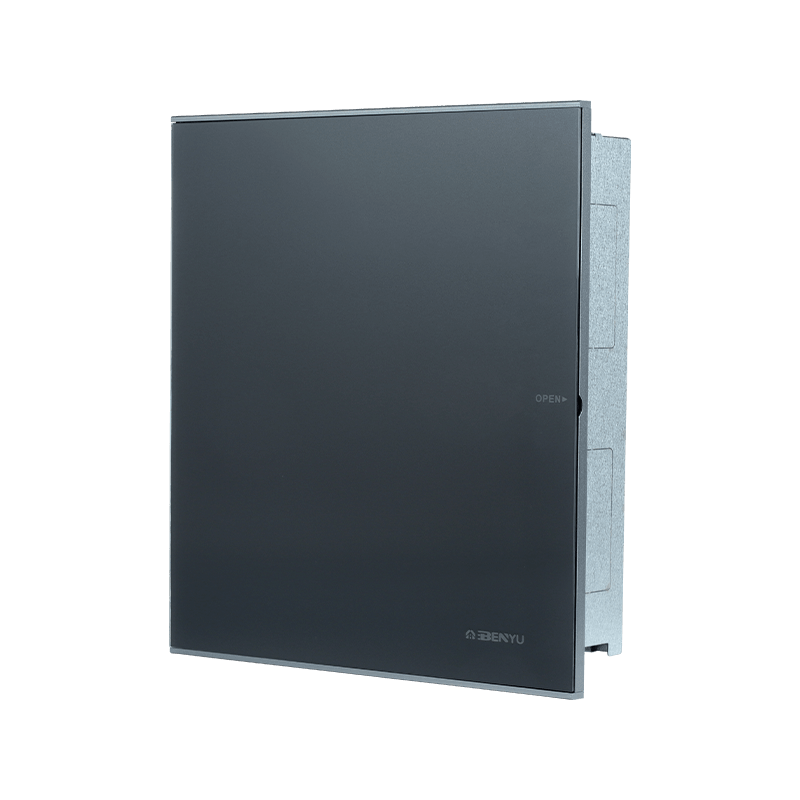Ensuring smooth operation of water circulation and hydraulic systems requires attention to both debris management and pressure balance. The Magnetic Filter and Hydraulic Balancing Pressure Divider are two essential components that support system longevity and consistent performance. Proper maintenance of these components not only preserves their function but also contributes to more predictable operation across heating and hydraulic circuits.

Regular Cleaning of the Magnetic Filter
A Magnetic Filter captures iron filings, rust particles, and other magnetic debris that can accumulate in water systems. Over time, this debris can reduce the efficiency of heat transfer and increase strain on pumps, valves, and other components. Routine cleaning is the important maintenance step for extending the life of the filter. Depending on system usage and water quality, the filter should be inspected periodically to check for buildup.
Disassembly is typically straightforward, allowing operators to remove captured debris with minimal tools. After cleaning, components should be reassembled carefully to ensure proper sealing and alignment. Regular attention to this process reduces the risk of corrosion or clogging, which can impact the overall system performance.
Monitoring System Water Quality
The efficiency of a Magnetic Filter is closely linked to water conditions. Hard water or water with high levels of sediment can increase the frequency of debris accumulation. Monitoring water quality and, if necessary, implementing water treatment or filtration measures can reduce the load on the filter and decrease wear over time. Combining proper water quality management with routine filter cleaning helps maintain a stable flow and consistent heat transfer in circulation systems.
Inspecting the Hydraulic Balancing Pressure Divider
While the Magnetic Filter protects against physical debris, maintaining consistent pressure across hydraulic circuits is equally important. The Hydraulic Balancing Pressure Divider distributes pressure evenly across multiple branches, ensuring that no single part of the system is exposed to excessive stress. Regular inspection of the divider includes checking for leaks, verifying connections, and confirming that pressure readings match system requirements.
Even minor deviations in pressure can cause uneven wear on pumps, valves, or actuators. By confirming that each circuit receives a balanced flow, operators can reduce unnecessary stress and help maintain consistent system performance. Maintenance routines should include visual inspections as well as periodic functional checks to ensure the divider continues to operate as intended.
Preventing Corrosion and Wear
Both the Magnetic Filter and the Pressure Divider are exposed to conditions that can cause wear over time. Corrosion, rust, or mechanical strain may develop if components are neglected. Using appropriate sealing materials, avoiding abrasive cleaning methods, and ensuring secure installation can protect these parts. Additionally, keeping the surrounding system components in good condition reduces the likelihood of secondary damage that could affect the filter or divider.
Documenting Maintenance and Operation History
Maintaining a record of inspection, cleaning, and any system adjustments provides practical insights for future maintenance planning. Notes on debris accumulation, water quality, and pressure distribution trends help operators schedule timely interventions, avoiding reactive maintenance. Documented history also aids in diagnosing issues more quickly if irregular performance occurs.
Integrating Maintenance into Routine Operations
A proactive approach combines filter cleaning, water quality monitoring, pressure verification, and documentation into a regular operational schedule. Doing so ensures that both the Magnetic Filter and Hydraulic Balancing Pressure Divider continue to perform effectively, supporting overall system stability. Over time, this approach contributes to fewer interruptions, more consistent performance, and a longer service life for water circulation and hydraulic systems.

 Language
Language













 Qigang Road, Huanghuaguitou Industrial Zone, Liu Shi Town, Yueqing City, Wenzhou City, Zhejiang Province
Qigang Road, Huanghuaguitou Industrial Zone, Liu Shi Town, Yueqing City, Wenzhou City, Zhejiang Province 



